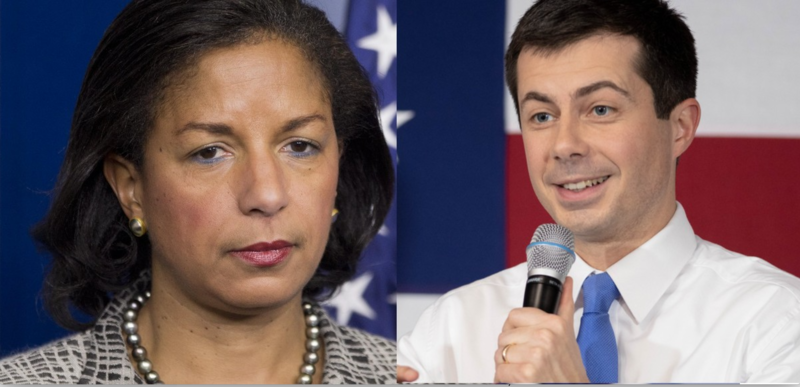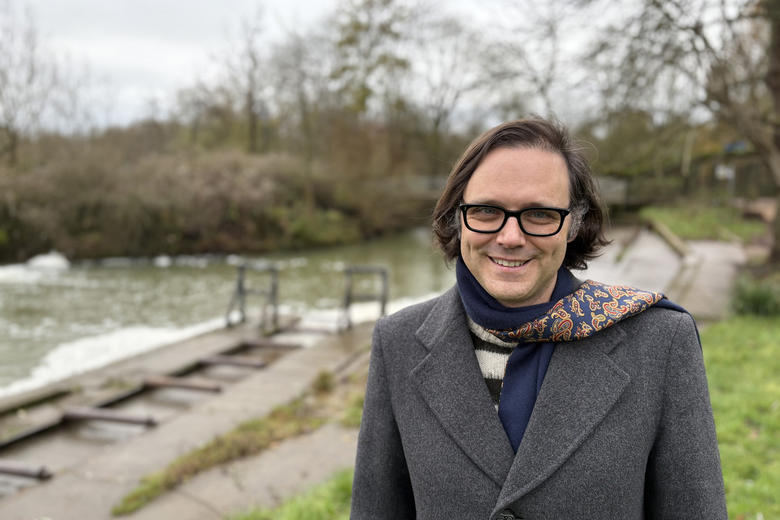OXONIANS IN THE NEW BIDEN ADMINISTRATION

OXONIANS IN THE NEW BIDEN ADMINISTRATION
Oxford graduates are filling senior leadership roles in the new US government
Published: 10 March 2021
Author: Sarah Whitebloom
Share this article
Oxford University’s role in educating leaders, who put their academic training to work serving societies around the world, has been highlighted as the names of a dozen Oxford graduates are among President Biden’s new administration.
Dr Edward Brooks, who heads the Oxford Character Project, a major research initiative focusing on responsible leadership, argues that universities are important sites of leadership development.
Three of the 25 members of the new US Cabinet, Gina Raimondo, Pete Buttigieg, and Eric Lander are Oxford alumni - as are an array of other senior and junior appointees.
Dr Gina Raimondo (New College, 1993) was the first woman to be Governor of Rhode Island and has been praised for her firm response to the COVID-19 pandemic. She is moving to Washington, having been confirmed as Secretary of Commerce. Dr Raimondo completed an MA and then a DPhil in Sociology, focusing her thesis on single motherhood in the US, evidence of a social concern that has characterised her career.
Pete Buttigieg (Pembroke, 2005) came to public prominence in his bid for the Democrat’s Presidential nomination. Formerly a mayor in Indiana, he is the new Secretary of Transportation. Like many political leaders in the UK, Mr Buttigieg studied Philosophy, Politics and Economics, enjoying a distinguished Oxford career. He was awarded a First, following exam revision on a cargo ship moving freight across the Atlantic. The boat, it seems, afforded a prime environment for distraction-free study.
Professor Eric Lander (Wolfson, 1978), will be leading the newly-created US Office of Science and Technology Policy. A Professor of Biology at MIT, and of Systems Biology at Harvard Medical School, Professor Lander’s student days were spent at Wolfson, where he wrote a DPhil on algebraic coding theory. He has gone on to make landmark contributions to the sequencing of the human genome. As a senior science advisor to President Obama, he made an important public contribution, ensuring the proper use of scientific evidence in criminal justice.
Dr Brooks says, ‘It is inspiring to see alumni who once took their places in Oxford’s seminar rooms and sports teams called into public leadership. And it points to the importance of Oxford’s work to develop responsible leaders who are equipped to lead well in all sectors of society.’
Key to the success of Oxford’s alumni were the Rhodes and Marshall scholarships, from which all of the alumni above benefited.
Beyond the US Cabinet, other Oxford graduates have been appointed to senior positions:
- Dr William J. Burns (St John’s, 1981) is the incoming Director of the CIA.
- Dr Elizabeth Sherwood-Randall (Balliol, 1981) is the new Homeland Security Advisor.
- Jake Sullivan (Magdalen, 1998) is the National Security Advisor.
- Jonathan Finer (Balliol, 1999) is the Deputy National Security Advisor.
- Dr Susan Rice (New College, 1996), the former National Security Advisor, will lead the Domestic Policy Council.
- Dr Kurt M. Campbell (Brasenose, 1981) will be Coordinator of Indo-Pacific affairs.
- Bruce Reed (Lincoln, 1982) will serve as White House Deputy Chief of Staff.
In President Biden’s wider team are:
- Megan Ceronsky (Hertford, 2001), the climate change advisor for the Obama administration, will take up a role in the Office of White House Counsel.
- Machmud Makhmudov (Magdalen, 2016), who completed an MPhil in Political Theory in 2018, is serving as a Policy Advisor for the Office of COVID Response. He previously supported the Biden campaign as a Policy Analyst.
Key to the success of Oxford’s alumni were the Rhodes and Marshall scholarships, from which all of the alumni named above benefited. Yet Oxford’s contribution to the formation of leaders is not limited to these prestigious initiatives.
At a more fundamental level, says research fellow, Roger Revell, it is bound up with the intellectual virtues the university has long sought to instil in its students: the capacity to think deeply and critically, to entertain alternative perspectives, and to undertake creative and generative research.
It is connected to the array of co-curricular activities, ranging from the debates at the Oxford Union to participation in college and university sport. When it comes to this cadre of Americans, the contribution of sport to leadership development is evident. Rowing, tennis, basketball, baseball, rugby and running all feature.
While writing a prize-winning thesis on Zimbabwean politics, Susan Rice not only rowed for New College but also led the Oxford women’s Blues basketball team to victory over Cambridge. Talking of her development as a leader, she commented, ‘I think my experience as an athlete has shaped who I am in more ways than I can describe. It’s made me strong. It’s made me not fear competition or bruising here and there. But it’s also made me willing to take risks, willing to see the whole court.’
More recently, Oxford’s role in equipping future leaders from around the world has found expression in cross-university programmes including the Global Leadership Initiative (GLI) and Global Leadership Challenge.
Machmud Makhmudov participated in the 2018 GLI cohort, joining a diverse group of postgraduate students from around the world in a six-month leadership learning journey. This unique programme aims to help students develop the qualities of character needed to lead in a way that is not merely effective but also responsible - oriented towards the flourishing of all people, the broader thriving of our societies, and the vitality of our planet.
The Oxford Global Leadership and Global Leadership Challenge are initiatives of the Oxford Character Project, an interdisciplinary initiative at the University, funded by the John Templeton Foundation, which focuses on the study and practice of responsible leadership.















